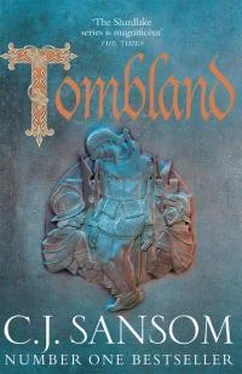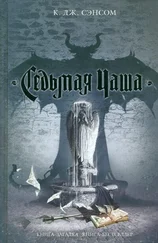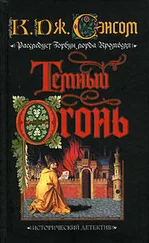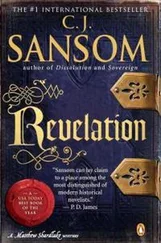Before nightfall, a small group of Italian mercenaries scouting outside the Norwich walls encountered a group of rebels. One was captured (the episode is reimagined in Tombland ), and he was hanged from the walls of Surrey Place. 12The mood on Mousehold was becoming fierce, hardly surprising given the prospect of a savage battle the next day. Northampton’s armies settled down for the night, the majority of them in the Market Square which was lit by a huge bonfire, while others patrolled the city and attempted to strengthen the walls. The patrols, in the narrow, hilly streets in pitch darkness, faced a formidable task. Now the trap was sprung; rebels opened fire with their cannon against the city’s eastern defences, following this up with a mass night assault through the streets. However, despite fierce street fighting, the rebels failed to dislodge the soldiers and were forced to retreat.
Next morning Northampton made another offer of pardon. It was reported that a crowd was gathered outside Pockthorpe Gate to the north, but when the Herald arrived there his offer of pardon was rejected, the argument being repeated that the rebels were loyal subjects in no need of pardon.
This was a feint; just then the rebels had entered the city across Bishopsgate Bridge. To avoid being trapped in Holme Street, with the fifteen-foot-high walls of the Cathedral Close on one side and the walls of the Great Hospital on the other, the rebels brought down the Great Hospital walls. 13This would have needed artillery, fired this time with some skill. The rebels were thus enabled to reach the broad square of Palace Plain. Here Northampton’s forces were soundly beaten, Lord Sheffield killed, and the remains of Northampton’s army fled, together with many richer inhabitants of the city, some in their lightest garments to disguise their status. Sotherton reported that a large part of the city around Bishopsgate Bridge was set alight, but the violent thunderstorm late on 1 August doused the fires. Northampton and his army retired to Cambridge.
The government army had been too small and poorly commanded, while the Italian mercenaries proved disappointing. The rebels had shown considerable skill as well as courage. Sotherton puts the rebel death toll at about 400. This might be as many as one in twenty of the camp-men, and again must have brought much grief to the camp.
GROWING ISOLATION : 1–24 AUGUST
The defeat of Northampton’s army was the high-water mark of the rebellion. Throughout August, in sometimes rainy weather, the rebels retained firm control of Norwich, but neighbouring camps were going down, and a second, major attack from Mousehold on Yarmouth failed on 17 August, a counter-attack capturing six cannon and thirty rebels. Meanwhile news of the preparation of another army from London, far larger and better commanded, would have reached the camp. The Mousehold men must have felt increasingly isolated.
Norwich was now thoroughly occupied, with Augustine Steward back in formal charge, but men from the camp holding all important positions. 1The cathedral was occupied. Again, there were several days of looting; rebels calling out ‘a Cod’s head for a penny’ to frighten the richer citizenry, while houses were broken into and looted, sometimes under the pretext of search being made for Northampton. Augustine Steward’s own house was broken into; however, the men were ordered off by a rebel in authority, indicating that Kett soon re-established control over his men in the city; indeed Steward was authorized to send sometimes unsympathetic preachers to the camp – although the richer citizens of Norwich must have remained in a state of considerable fear.
On the 11 August a proclamation declared forfeit all the property of the Western rebels, who were decisively defeated at Sampford Courtenay on the 16th – savage reprisals against the population followed. Pardons and money were carried to the three camps in Essex, and two in Kent. Six leaders of the Essex camps were later executed. 2The majority of the smaller camps were going down.
THE COMING OF WARWICK ’S ARMY
Around 20 August the Earl of Warwick’s army set out from London. Again, numbers vary according to the sources, but 10,000 men is a reasonable figure. The army consisted of local levies but also professional soldiers, including Captain Drury, who had experience of the Scottish wars, and some 1,500 landsknechts. These Swiss or German mercenaries were among the most feared troops in Europe, and were the strongest and most experienced of soldiers, employing heavy horses, long pikes and arquebuses, which in close formation could deliver deadly volleys. 1
The original plan had been for Somerset himself to command the army, but he changed his mind and placed John Dudley, Earl of Warwick, in command. Dudley was the second man on the Council, an experienced and highly successful soldier both on land and sea, a very different prospect from Northampton. It may be that Somerset changed command since leading the force against the rebels himself could finally have destroyed his reputation as a ‘friend of the poor’, but if so, it was another mistake, because Dudley’s victory greatly enhanced his own reputation. The army set out on 20 August, linked up with the remnants of Northampton’s army at Cambridge, then moved on to Norfolk and by the 23rd had reached Wymondham. On Mousehold the mood must have been a mixture of fear, anger and above all determination. Given the skill the rebels were to show against a serious professional army, good use must have been made of the month of August for intensive training. This would only stiffen the resolve of those about to fight.
But what of those unable to do so – those wounded from earlier battles, the unfit, the elderly and women? In Tombland I have imagined these groups as being sent away before Dudley arrived. This is reinforced by the fact that the rebels planned to burn the camp beforehand if they had to give battle.
How hopeful were those who remained? There had been every chance of defeating Northampton’s small, weak army, but Warwick was a very different prospect. Determination to do or die must have been mixed with doubt, especially among the better-off yeomen, who had most to lose. It is quite possible that August saw a shift in power in the camp towards the younger, more radical element, with the least to lose. Kett retained his leadership throughout but, as we shall see, there are signs that perhaps by the very end he was no longer fully trusted.
There must, inevitably, have been deserters who preferred to go home rather than face death – this too may have shifted the balance of power in the camp. It would be easy for them to get out, as the wide frontiers of Mousehold Heath were impossible to police effectively.
What would the rebels do if they won? It is interesting that, when it later became clear that they would have to give battle outside Norwich, they brought down the walls of the northern part of the city. 2This denied the walls as a position from which government forces could attack them. In Tombland I have speculated that they may have further intended, had they won the final battle, to sweep on into north Norwich, where they had support among the citizens, then perhaps afterwards to try to reinstate the camps of the South-East, possibly even march on London to face the Protector himself. This seems the most likely plan that the optimists might have envisaged.
As Warwick approached the city, the rebels shored up the walls. 3This does not mean that they did not envisage more street fighting in Norwich – they did, and were to be extremely effective – but it presented an extra barrier for Warwick’s forces. If he broke in and fighting inside Norwich failed, the fallback was to give battle in open country, where the rebels had the advantage of being able to choose the site, which must have been well prepared.
Читать дальше






![К Сэнсом - Стенание [другой перевод]](/books/432043/k-sensom-stenanie-drugoj-perevod-thumb.webp)



